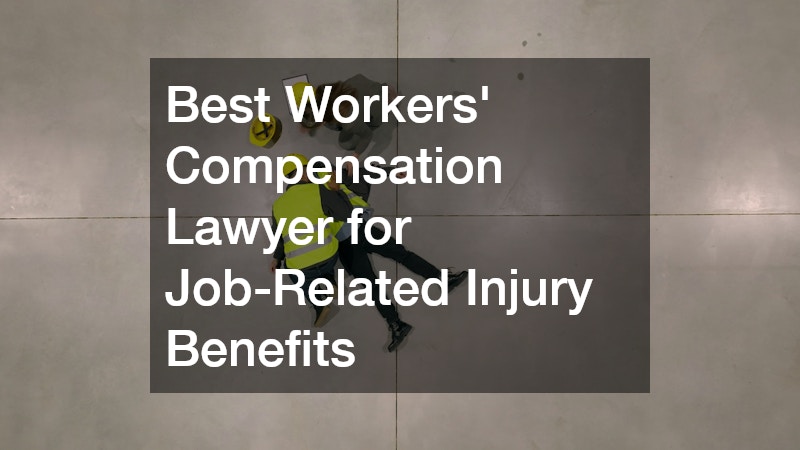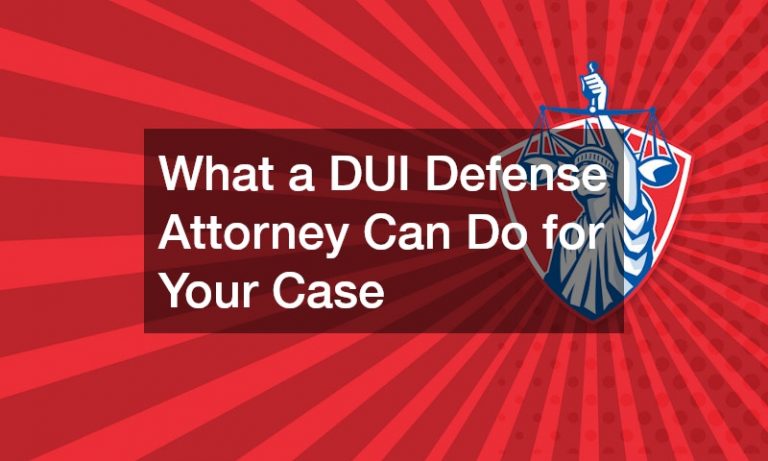

Key Takeaways
- Hiring the best workers’ compensation lawyer for job-related injury benefits increases your chances of securing full compensation.
- Workers’ compensation covers medical expenses, wage replacement, disability benefits, rehabilitation, and death benefits for families.
- Common challenges include denied claims, limited medical treatment approvals, and disputes over disability ratings and wage calculations.
- A skilled lawyer helps with accurate claim filing, appeals, evidence collection, and negotiation for higher settlements.
- Most attorneys work on contingency, meaning you pay only if your case is successful.
- Choosing a lawyer with proven experience, state-specific expertise, and strong client communication is critical to case success.
Introduction

When you suffer a workplace injury, your first priority is recovering your health. However, for many workers, the second most pressing concern is ensuring that medical bills, lost wages, and ongoing treatment costs are covered. Workers’ compensation is designed to protect employees after job-related injuries, but navigating the claims system can feel overwhelming.
Filing forms, meeting strict deadlines, and negotiating with insurance companies often require more expertise than most employees have. That’s why hiring the best workers’ compensation lawyer for job-related injury benefits can make all the difference. A skilled attorney helps workers secure benefits, fight wrongful denials, and win appeals when necessary.
This article provides an in-depth look at workers’ compensation, the claims process, common challenges, and how the right lawyer can maximize your benefits.
Understanding Workers’ Compensation and Job-Related Injury Benefits
Workers’ compensation is a mandatory insurance system created to protect employees and employers when injuries occur in the workplace. The system provides financial and medical support without requiring the employee to prove fault, streamlining the process compared to traditional lawsuits. Coverage varies by state but usually includes medical expenses, wage replacement, rehabilitation services, and death benefits for surviving family members. This ensures employees do not suffer financial ruin after an injury while also protecting employers from costly litigation. Without workers’ compensation, recovering from a serious workplace injury could leave employees unable to pay for necessary treatment or basic living costs.
What Is Workers’ Compensation?
Workers’ compensation is a state-regulated system that ensures injured employees receive essential care and financial support. Unlike personal injury lawsuits, workers’ comp claims typically do not involve proving negligence, making it a no-fault system. For employees, this means coverage is available even when accidents occur without clear fault. The main purpose is to provide prompt medical care and fair financial assistance while limiting the need for prolonged legal disputes. Employers are required by law to carry workers’ compensation insurance, which is regulated by state agencies to protect workers’ rights.
Common Job-Related Injuries Covered
Workplace accidents and illnesses can occur in virtually any industry. Workers’ compensation covers a wide range of injuries, such as slips and falls in office settings, repetitive motion injuries from factory work, and traumatic accidents on construction sites. Exposure to harmful chemicals, extreme noise, or unsafe equipment may also result in long-term medical conditions like respiratory illnesses, hearing loss, or chronic back pain. Because every job has unique risks, it is important for employees to understand which injuries qualify under their state’s workers’ comp laws. Coverage is designed to address both sudden accidents and conditions that develop over time due to job duties.
What Benefits Can Workers Receive?
Employees who qualify for workers’ compensation can access several categories of benefits. Medical coverage typically includes hospital stays, surgeries, medications, and physical therapy. Temporary disability benefits provide partial wage replacement during recovery, while permanent disability benefits are available when injuries result in long-term limitations. Vocational rehabilitation assists employees who cannot return to their previous role by funding retraining or education for new employment. For families who lose a loved one to a workplace accident, death benefits offer financial assistance to dependents. Collectively, these benefits are intended to stabilize workers and their families during a difficult and uncertain time.
Why Hiring the Best Workers’ Compensation Lawyer Matters
While workers’ compensation is intended to be straightforward, in practice it often involves complications that make legal representation vital. Employers and insurers may minimize claims, delay payments, or challenge whether an injury qualifies for benefits. Injured employees without legal guidance may find themselves overwhelmed, undercompensated, or even denied benefits altogether. The best workers’ compensation lawyer for job-related injury benefits understands how to navigate these challenges and advocate effectively for clients. Having a lawyer on your side ensures deadlines are met, paperwork is accurate, and rights are fully protected. This can make the difference between financial hardship and financial stability.
The Complexity of Workers’ Comp Claims
Filing a workers’ compensation claim involves navigating strict state rules and procedures. Deadlines are often short, requiring employees to notify employers and file claims within days or weeks. Insurers frequently scrutinize claims for inconsistencies, leading to denials if paperwork is incomplete or late. A knowledgeable lawyer prevents these pitfalls by handling the details, anticipating insurer tactics, and building a thorough case. This reduces stress for injured workers, allowing them to focus on recovery rather than confusing legal processes. Without proper guidance, a valid claim could be lost due to minor technical errors.
How Lawyers Protect Employee Rights
Employers and insurers are motivated to control costs, which may lead to reduced benefits or disputed claims. An experienced workers’ compensation lawyer protects employees by challenging denials, ensuring medical treatment is fully covered, and defending against retaliation such as demotion or termination. Lawyers also push back against improper disability ratings that minimize the severity of injuries. By advocating for the full value of a claim, attorneys safeguard both immediate benefits and long-term financial security. Without legal protection, many employees settle for less than they deserve or face intimidation from their employers.
Maximizing Benefits and Settlements
Workers’ compensation lawyers are skilled negotiators who know how to secure the maximum possible settlement. They understand how to present evidence that justifies higher compensation, whether through medical records, expert testimony, or vocational assessments. Lawyers can negotiate lump-sum settlements that provide long-term financial relief or argue for permanent disability benefits when injuries prevent a return to work. They also ensure wage replacement is calculated fairly, reflecting the worker’s actual earnings. For many employees, this guidance results in significantly larger payouts compared to handling claims independently.
Qualities to Look for in the Best Workers’ Compensation Lawyer
Not all attorneys have the skills and background required to handle workers’ compensation cases effectively. Choosing the right lawyer is a critical decision that can influence the success of a claim. The best workers’ compensation lawyer for job-related injury benefits combines legal knowledge, practical experience, and strong communication skills. Clients should evaluate a lawyer’s background, reputation, and commitment to client service before making a decision. By doing so, injured workers can ensure they partner with an advocate who is fully prepared to fight for their rights and secure the best possible outcome.
Experience and Specialization
Workers’ compensation law is highly specialized, requiring an attorney who is deeply familiar with its complexities. Lawyers who focus primarily on workers’ comp cases are more likely to anticipate challenges and identify strategies that general practice attorneys might miss. Years of experience handling similar cases provide insight into how insurers operate, how administrative judges rule, and what types of evidence are most persuasive. This specialized expertise increases the chances of securing favorable results for clients.
Track Record and Success Rate
A lawyer’s history of success provides valuable insight into their effectiveness. Workers should look for attorneys who can demonstrate strong settlement outcomes, positive client testimonials, and recognition from professional organizations. While no lawyer can guarantee results, a consistent record of securing benefits for clients signals competence and reliability. Asking for case examples or references can help employees make informed decisions. Choosing an attorney with proven results reduces the risk of disappointment and increases confidence in the legal process.
Knowledge of State Workers’ Comp Laws
Because workers’ compensation laws differ from state to state, local knowledge is essential. The best workers’ comp lawyer understands specific state filing deadlines, benefit calculations, and administrative procedures. They are also familiar with local medical providers, vocational specialists, and workers’ comp judges, which can be an advantage in hearings or negotiations. A lawyer without this knowledge may miss critical details that affect the case outcome. State-specific expertise ensures claims are built on a solid legal foundation.
Communication and Client Support

Workers’ compensation cases can last months or years, making clear communication essential. The right lawyer provides regular updates, explains legal terms in plain language, and responds promptly to client concerns. Accessibility builds trust and reduces stress for clients who may already be struggling with medical and financial challenges. A supportive attorney treats clients with respect, compassion, and professionalism. Strong communication ensures clients feel informed and empowered throughout the legal process, rather than left in the dark.
The Process of Filing a Workers’ Compensation Claim
The workers’ compensation claims process involves several steps that must be followed carefully to avoid delays or denials. From reporting the injury to navigating paperwork and hearings, each stage requires attention to detail. Employees who understand this process are better prepared to protect their rights. However, even with careful preparation, mistakes can happen, making legal assistance highly valuable. A workers’ compensation lawyer provides essential guidance throughout each stage, ensuring deadlines are met and evidence is properly documented. This section outlines the critical steps employees must follow after a workplace injury.
Steps Employees Must Take After an Injury
The actions taken immediately after an injury can determine whether benefits are approved. Employees should first report the incident to their employer as soon as possible, since delays may be grounds for denial. Seeking medical treatment immediately and keeping all medical records is equally important. Workers should also document the incident with photographs, written notes, or witness statements whenever possible. These steps establish a clear link between the injury and the workplace, strengthening the claim.
Filing the Initial Claim
Filing a claim typically involves submitting state-specific forms, providing medical evidence, and complying with strict deadlines. Employers are often required to provide workers with claim forms, which must be completed and filed with the state agency or insurer. Missing even one required document can delay benefits or result in denial. Medical reports play a key role in proving the extent of injuries and necessary treatment. Employees should carefully review all forms before submission, ideally with the guidance of a lawyer.
Role of the Lawyer During Filing
A workers’ compensation attorney ensures claims are filed correctly the first time. Lawyers help complete paperwork, gather comprehensive medical and occupational evidence, and advise clients on how to communicate with insurers. They can also prevent errors that might otherwise delay benefits, such as missing deadlines or incomplete medical reports. By taking over the administrative burden, lawyers allow injured workers to focus on recovery. Their involvement increases the likelihood that claims are approved quickly and fully.
Common Challenges and Disputes in Workers’ Compensation Cases
Even when claims are filed correctly, disputes frequently arise. Employers and insurers often challenge whether injuries are work-related, limit medical treatment, or dispute disability ratings. These challenges can delay or reduce benefits, creating financial strain for workers and their families. Understanding common disputes prepares employees to recognize potential issues early. With the support of a skilled attorney, these disputes can often be resolved in favor of the injured worker. This section highlights the most frequent obstacles workers face during the claims process.
Claim Denials
Claims may be denied for a variety of reasons. Some employees miss strict deadlines for reporting injuries, while others fail to provide sufficient medical documentation. Employers may also dispute claims by arguing the injury was not work-related. Denials are frustrating, but they are not the end of the process. Workers can appeal decisions, often with stronger evidence and legal representation. A lawyer can identify why a claim was denied and take steps to correct the issue, improving the chances of success on appeal.
Disagreements on Medical Treatment
Insurance providers often attempt to limit medical costs by denying coverage for certain treatments or requiring workers to see employer-approved doctors. This can restrict access to necessary care and prolong recovery. Disputes may arise over whether surgery, physical therapy, or alternative treatments are truly necessary. Lawyers advocate for the worker’s right to choose appropriate medical treatment and challenge denials that are not in the employee’s best interest. Proper legal advocacy ensures workers receive the care they need to recover fully.
Disputes Over Disability Ratings and Benefits
Disability classifications directly impact compensation, making them a common source of disagreement. Employers and insurers may argue that an injury is temporary rather than permanent, or that limitations are less severe than claimed. These disputes affect how much wage replacement or permanent disability benefits a worker receives. Lawyers gather medical opinions, vocational assessments, and other evidence to challenge unfair ratings. By presenting a stronger case, attorneys help workers secure benefits that more accurately reflect their condition and limitations.
Workers’ Compensation Appeals: How the Best Lawyer Helps
When a claim is denied or benefits are reduced, the appeals process offers workers another opportunity to secure rightful compensation. Appeals are often complex, requiring detailed evidence, testimony, and legal arguments. A skilled workers’ compensation lawyer guides clients through this process, ensuring every opportunity is taken to challenge unfair decisions. By managing appeals effectively, attorneys help workers access the financial and medical support they deserve. This section explains how appeals work and the role a lawyer plays in strengthening cases.
Understanding the Appeals Process
The appeals process varies by state but generally involves hearings before a workers’ compensation board or administrative law judge. Workers present evidence, call witnesses, and challenge the insurer’s arguments. If the board denies the claim again, workers may pursue further appeals in state court. The process can be lengthy, but it provides multiple opportunities to correct unjust decisions. A lawyer’s familiarity with local procedures and legal strategies significantly improves the chances of success during these hearings.
Evidence and Legal Arguments
Strong appeals depend on compelling evidence and clear legal arguments. Lawyers often gather testimony from medical experts, co-workers, or vocational specialists to prove the injury’s severity and workplace connection. They highlight inconsistencies in the insurer’s arguments and use legal precedent to strengthen the case. By presenting a persuasive narrative supported by credible evidence, attorneys increase the likelihood of overturning denials. Without legal representation, workers may struggle to meet the burden of proof required during appeals.
Timeline and Potential Outcomes
Workers’ compensation appeals can take months or even years, depending on the complexity of the case and state procedures. While the process requires patience, the outcomes can be life-changing. Successful appeals may result in full benefits approval, negotiated settlements, or even court rulings that establish precedent. Although not every appeal is successful, having an experienced lawyer maximizes the chances of a favorable resolution. For injured workers, the time and effort invested in an appeal can lead to much-needed financial security.
Costs of Hiring a Workers’ Compensation Lawyer
One of the most common concerns workers have about hiring an attorney is cost. Fortunately, most workers’ compensation lawyers work on a contingency fee basis. This means employees pay nothing upfront and only owe a fee if the lawyer secures benefits or a settlement. State laws typically regulate fees to ensure they remain fair and reasonable. As a result, legal help is accessible to most workers, regardless of financial circumstances. This section explains how attorney fees work and why they are a worthwhile investment.
Contingency Fees Explained
With a contingency fee arrangement, the lawyer is paid a percentage of the awarded benefits or settlement. If the worker loses the case, no legal fees are owed. This system ensures that legal representation is available to injured employees who may not have the resources to pay upfront. It also aligns the lawyer’s interests with the client’s—both benefit from a successful outcome. This makes hiring a lawyer a practical choice even for workers facing financial strain.
State Fee Regulations
Most states regulate the percentage attorneys can charge in workers’ compensation cases. Fee caps usually range from 10% to 25% of the final award. In many states, fees must also be approved by a workers’ compensation judge to protect workers from excessive charges. These regulations provide transparency and ensure that workers retain the majority of their settlement or benefits. By understanding local rules, employees can feel confident about the financial arrangements with their attorney.
Why the Investment Is Worth It
Hiring a lawyer often leads to significantly larger settlements than workers achieve alone. Attorneys know how to identify overlooked benefits, challenge unfair denials, and present stronger cases. They reduce the risk of costly mistakes and relieve the stress of navigating complicated paperwork and hearings. Even after legal fees are deducted, most workers end up with more financial support than they would have secured without representation. For many, the peace of mind and improved outcomes justify the investment.
Real-Life Case Examples
Case studies highlight the real impact of legal representation. For instance, a warehouse worker denied surgery coverage eventually won approval on appeal after a lawyer presented compelling medical testimony. A construction employee with permanent back injuries secured lifetime disability benefits when a lawyer successfully argued for a higher disability rating. In another case, a nurse exposed to hazardous chemicals received both wage replacement and vocational rehabilitation after her attorney demonstrated long-term occupational harm. These examples show how lawyers transform difficult cases into successful outcomes, protecting the rights and livelihoods of injured employees.
How to Choose the Right Workers’ Compensation Lawyer Near You
Selecting the right lawyer requires research, careful questioning, and awareness of red flags. Workers should start by consulting online directories, checking state bar association referrals, and seeking recommendations from trusted sources. Once potential lawyers are identified, consultations allow clients to evaluate qualifications and compatibility. Asking the right questions helps ensure the lawyer is prepared to handle the case effectively. By avoiding red flags and focusing on specialization, workers can find an attorney who will fight for their best interests.
Research and Referrals
Workers should begin by exploring online legal directories, reading client reviews, and contacting state bar associations. Personal referrals from friends or colleagues who have filed claims can also be valuable. Research helps identify attorneys with strong reputations and relevant experience. By narrowing the list to lawyers who specialize in workers’ comp cases, employees improve their chances of finding effective representation.
Consultation Questions to Ask
During consultations, workers should ask about the lawyer’s experience, success rate, and fee structure. Important questions include: How many workers’ comp cases have you handled? What is your typical settlement range? How are fees regulated under state law? Who will manage my case day-to-day—you or junior staff? Clear answers to these questions reveal whether the lawyer has the skills and commitment needed.
Red Flags to Avoid
Employees should be cautious of lawyers who make unrealistic promises, fail to communicate clearly, or lack verifiable experience in workers’ comp cases. Other warning signs include vague answers to questions, hidden fees, or pressure to sign contracts quickly. Avoiding these red flags helps workers select an attorney who is trustworthy and dedicated to client success.
Conclusion
Workplace injuries can disrupt health, income, and quality of life. Workers’ compensation laws were created to reduce this burden, but the system is not always simple to navigate. Insurance companies and employers may resist paying full benefits, leaving workers vulnerable. Hiring the best workers’ compensation lawyer for job-related injury benefits ensures claims are filed correctly, disputes are resolved fairly, and appeals are pursued strategically.
With skilled legal representation, employees gain an advocate who protects their rights and secures the maximum possible compensation. For more detailed information on workplace rights, visit the U.S. Department of Labor or explore resources from the National Institute for Occupational Safety and Health. Both provide authoritative guidance on workers’ compensation and job safety. Ultimately, choosing the right lawyer is an investment in both financial security and peace of mind, allowing injured workers to focus on recovery while knowing their future is safeguarded.




